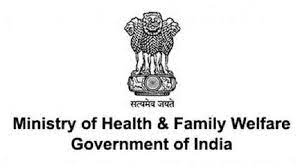As the curtain descends on the Covid-19 era, India grapples with the resurgence of traditional infectious diseases like malaria and tuberculosis (TB), substantially disrupted by the pandemic. Despite remarkable strides, the road to containment seems daunting.
The relentless focus on Covid variants, notably the JN.1 sub-variant, retains the spotlight, although the situation doesn’t warrant the surge seen during the pandemic’s peak. Dr. Ishwar Gilada highlighted the unintended panic resulting from repetitive assurances to stay cautious, diverting attention from equally pressing health concerns like tuberculosis.
The collateral damage inflicted by Covid-19 looms large, exemplified by tuberculosis, causing 495,000 additional deaths in 2021. Such collateral effects have persisted, underscoring the massive disruption in healthcare services during the pandemic years.
India’s ambitious targets of becoming TB-free by 2025 and malaria-free by 2027 face significant impediments. The country leads the world in TB cases, contributing to 27% of global cases, compromising its commitment to combat the disease.
Similarly, India grapples with a predominant share of malaria cases and deaths within the South-East Asia region, hampering its goal of malaria elimination by 2030. The 2023 World Malaria Report highlighted India’s struggle, accounting for 94% of deaths in the region.
However, strides haven’t been futile. The nation’s concerted efforts led to a 16% reduction in TB incidence and an 18% drop in TB mortality from 2015 to 2022. This pace eclipses the global decline, signifying progress despite challenges.
India’s malaria elimination journey showcased a commendable 85.1% reduction in cases and an 83.36% decline in deaths between 2015 and 2022, lauded by Union Health Minister Mansukh Mandaviya.
Dr. Dipu TS acknowledged the strides made in countering these diseases, attributing the decline to initiatives promoting early detection, treatment completion, improved sanitation, and awareness campaigns.
However, Dr. Dipu cautioned against complacency, highlighting the looming threats of drug-resistant strains and healthcare inequities that could potentially trigger a resurgence. Sustaining vigilance and allocating resources remain paramount to stave off the resurgence of these infectious adversaries.
India’s battle against infectious diseases is far from over. Vigilance, equitable healthcare access, and sustained efforts are imperative to navigate the challenges posed by malaria and tuberculosis and ensure that hard-won gains are not overshadowed by resurgent threats.











